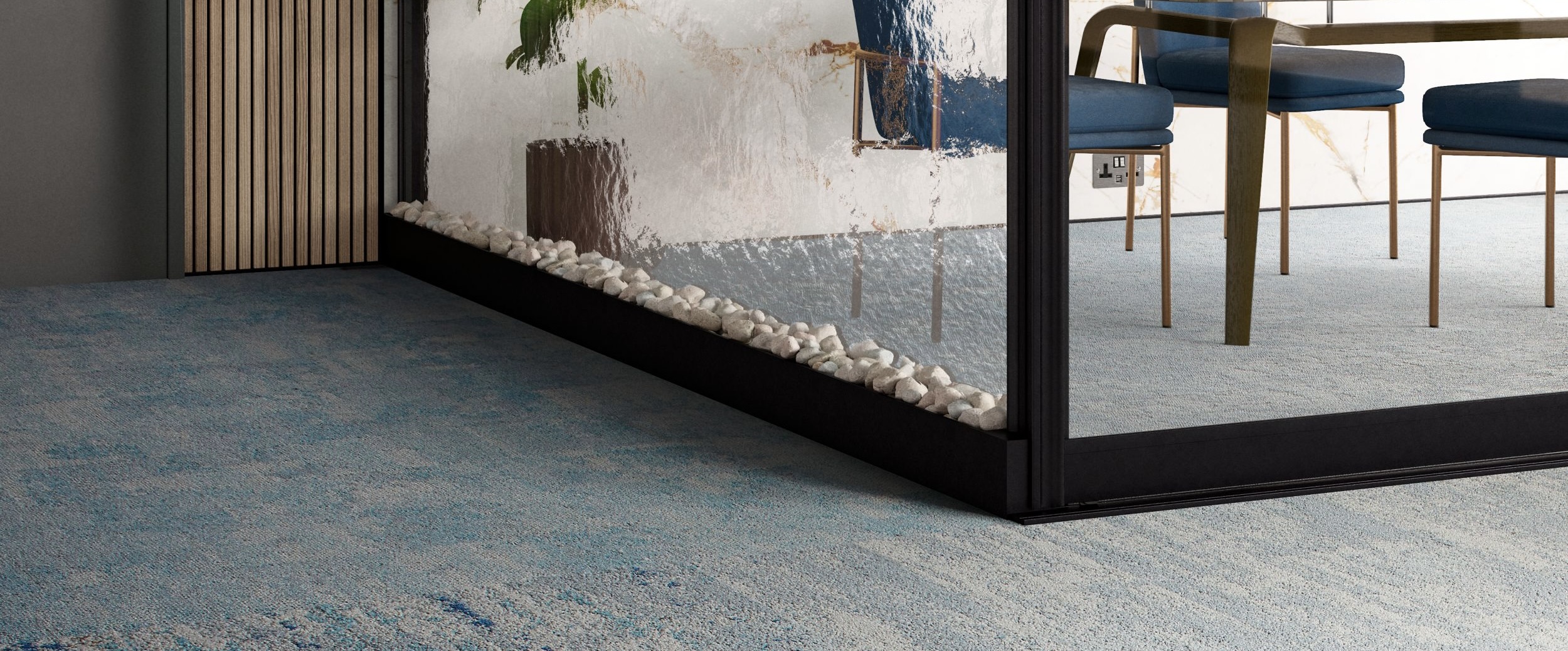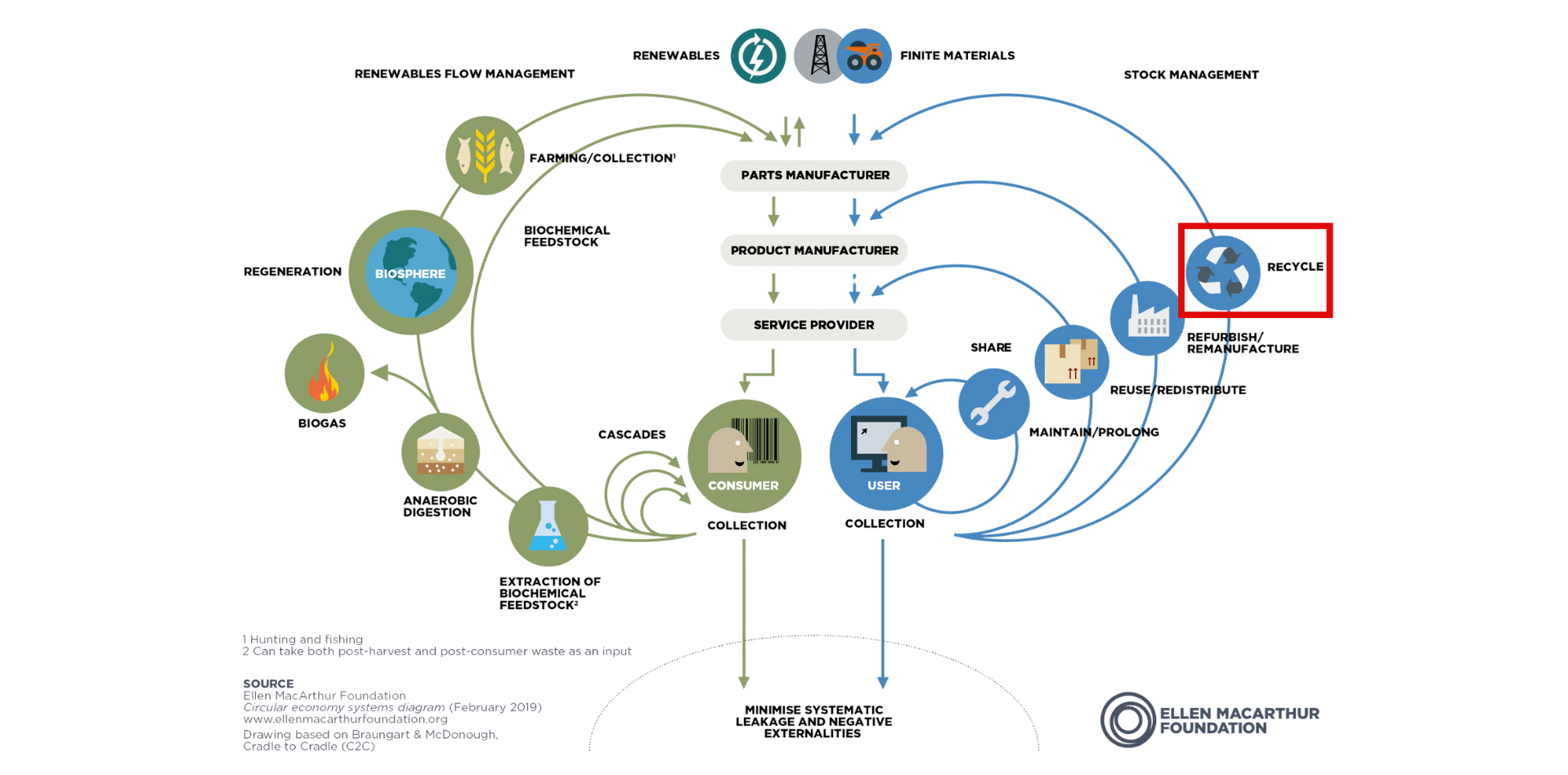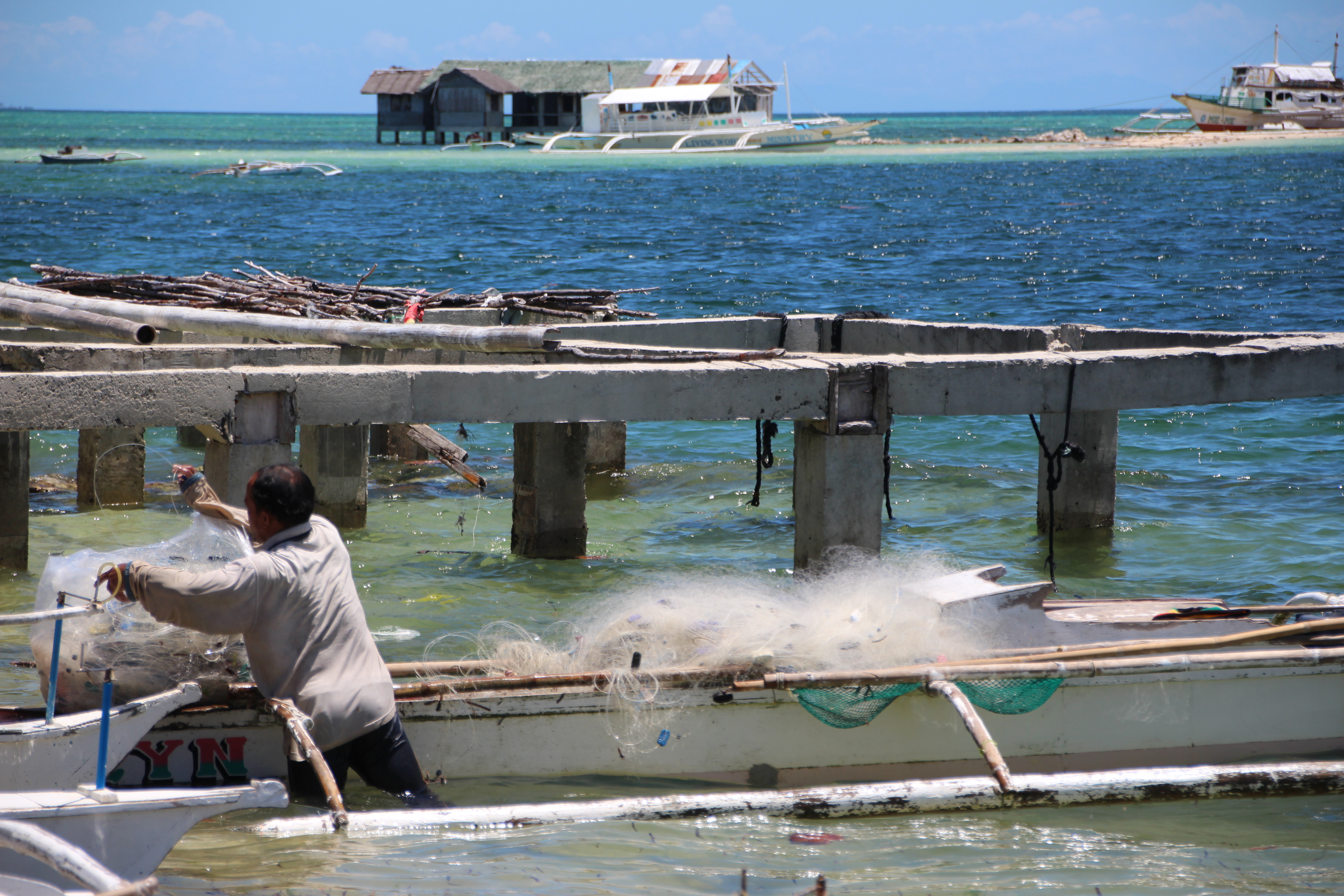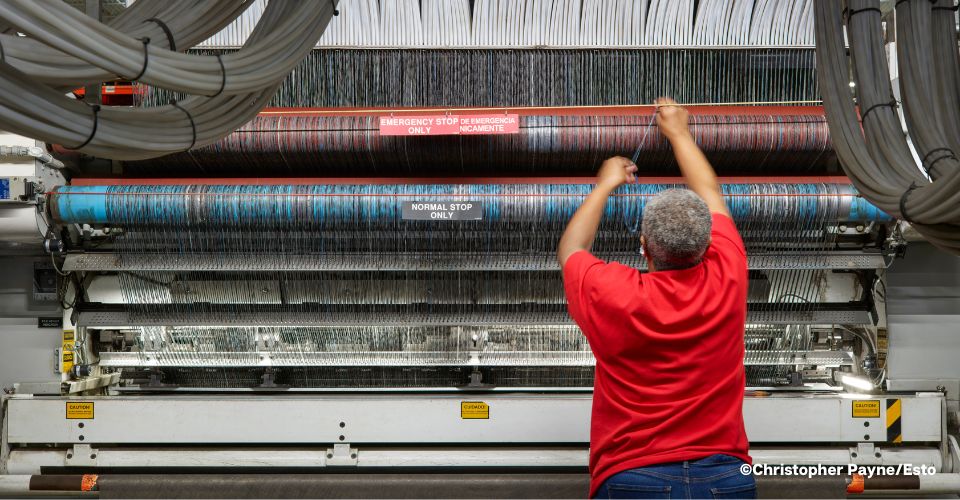Story of Interest
Interface: A Compelling Case for Sustainable Business

Undulating Water Carpet Tiles by Interface
Interface is a global carpet manufacturing company that specializes in modular carpet tiles and commercial floor coverings. Founded in 1973 by Ray Anderson, Interface has been a pioneer in sustainable practices and is a leader in the industry for its commitment to environmental responsibility. How were they able to achieve this and remain profitable?
Interface's ReEntry program lies at the heart of their circular economy approach. The circular model aims to create a sustainable system by minimizing waste, maximizing resource efficiency, and promoting the reuse and recycling of materials. Instead of the traditional linear "take-make-dispose" approach, a circular economy seeks to create a closed-loop system where products and materials are continuously reused, repurposed, or recycled. Through their ReEntry program, Interface collects and reuses old carpet materials that would have originally been discarded to landfill, manufacturing new carpets with over 60% recycled content.1 This pioneering step not only reduced the need for new virgin materials but also minimized waste generation, establishing a continuous cycle of resource utilization in their product lifecycle.

Figure 1. The Butterfly Diagram. Ellen Macarthur Foundation.
Old material is recycled and manufactured into new carpet, preserving and prolonging its value. (one of the elements of recirculation highlighted in red)

Fisherman collecting old fishing nets for Net-Works

New carpets created using ECONYL yarn processed from recycled fishing nets
Interface, in collaboration with the Zoological Society of London (ZSL) and Aquafil, launched the innovative Net-Works program to creatively address the environmental threat posed by discarded fishing nets in our oceans.2 Despite the apparent disconnection between marine pollution and carpet manufacturing, Interface's systems thinking approach recognizes the interconnectedness of environmental challenges and the broader implications of their operations.
The program operates in the Philippines and Cameroon, where discarded fishing nets are purchased from fishermen. These nets serve as the raw material for Aquafil, who transforms them into ECONYL, a 100% recycled yarn used by Interface to manufacture carpets.3 In just 18 months, the program successfully collected 18,870 miles of fishing nets, creating additional income and incentives for fishermen to change their behavior, effectively preventing marine pollution. In the future, Net-Works aims to collect 38,000 kilograms of discarded nets annually to safeguard fragile ecosystems while simultaneously reducing reliance on virgin materials.4
Critics argue that more sustainable products and business models, such as those offered by Interface, will cost more and make the company less profitable. However, these views often overlook the intangible benefits of a more systemic viewpoint. For example, Interface was one of the first to recognize that corporates are placing more emphasis on ESG within their own operations, and by making an eco-friendly product available, Interface were able to provide options to corporates that fit within their ESG priorities before most of their competitors. Further, their stock price has increased overall by 84% with over $1.3 billion in revenue in 2023, suggesting that their approach has not impacted their financial health or competitiveness. Interface's success challenges the notion that sustainability compromises profitability, making a strong case for the long-term viability of environmentally responsible business practices.